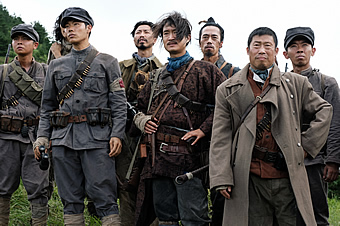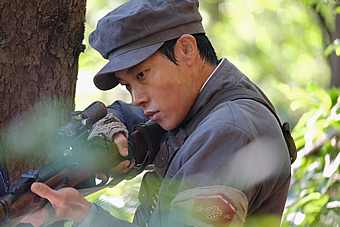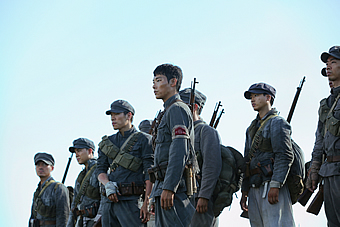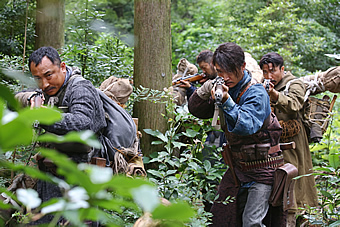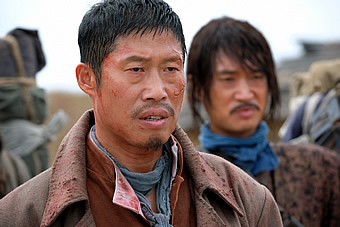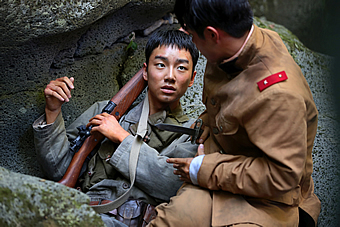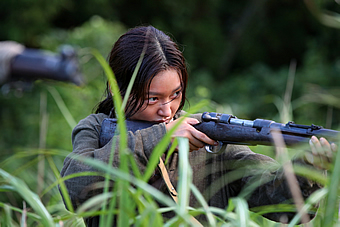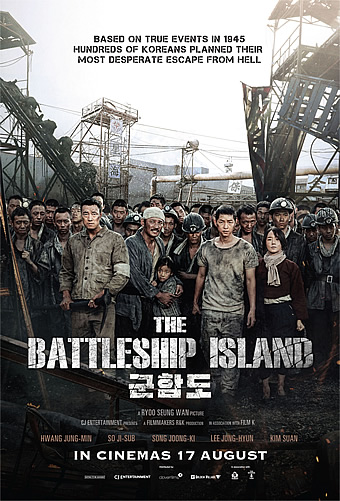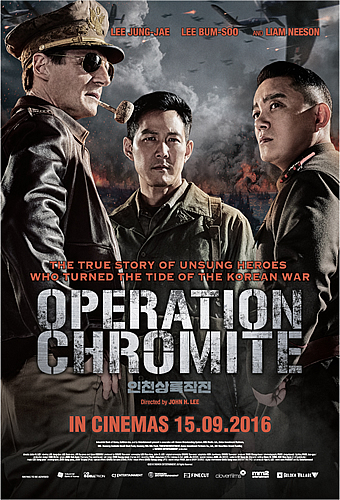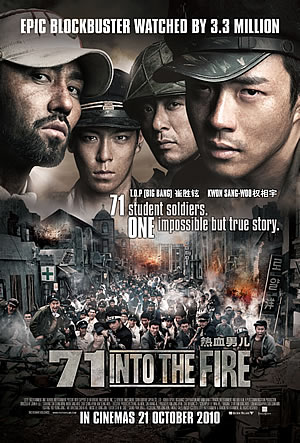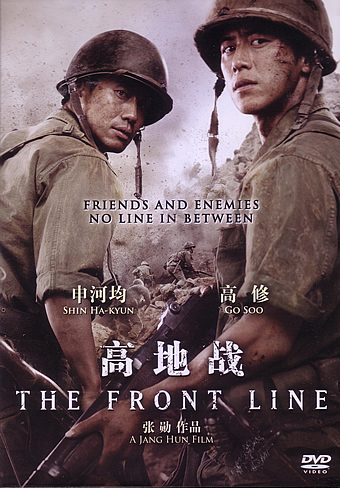THE BATTLE: ROAR TO VICTORY (봉오동 전투) (2019)
Genre: Action/War
Director: Won Shin-yun
Cast: Ryu Jun-yeol, Yoo Hai-jin, Jo Woo-ji
Runtime: 2 hrs 15 mins
Rating: NC16 (Violence)
Released By: Shaw Organisation
Official Website:
Opening Day: 26 September 2019
Synopsis: Based on the Bongo - dong battle in 1920, which remained a great victory within the Korean independence battles In 1920, when Korea is under Japanese rule , the Korean Independence Army’s Hae - chul (YOO Hai - jin) and his subordinates are carrying out the operation to deliver funds to the Korean Provisional Government in Sh anghai. During the operation Hae - chul is reunited with Jang - ha (RYU Jun - yeol), a young squad commander, whose mission is to defend Samdunja. They unite and trap the Japanese soldiers in Samdunja, soundly defeating them. Now they’re chased by Japanese troop s and Hae - chul finds out that Jang - ha’s mission isn’t over yet. A crucial yet dangerous task is still assigned to him
Movie Review:
Were it not for the Japanese colonial rule of Korea between 1910 and 1945, both countries should be natural allies today against both China and North Korea; unfortunately, history has cast a long and dark shadow on their relations, which has even deteriorated in recent months into a trade spat and cast implications on their defense intelligence sharing. Seen in that light, ‘The Battle: Roar to Victory’ can either come across as sheer propaganda which will fan the flames of Korean nationalism or a timely reminder of the humiliation which Korea had suffered under the hands of the Japanese. And in turn, depending on which camp you belong to, you’ll either embrace this movie or regard its intentions and treatment warily.
Depicting one of the most celebrated moments in Korea’s fight for independence, the film follows the ragtag members of the Korea Independence Army as they engage in a series of guerrilla-style battles with the Japanese army at Fengwudong in Manchuria in 1920. Led by Hae-chul (Yoo Hai-jin), the militia were tasked to deliver funds to the Korean Provisional Government in Shanghai, but were instead met with the full might of the Japanese army. Though clearly outnumbered and lacking their opponents’ firepower, these brave men exploited the mountainous terrain of Fengwudong to their advantage, eventually soundly defeating the Japanese. It is this victory which also gave momentum to the subsequent independence battles throughout the 1920s, as the closing credits unabashedly trumpet.
Though clocking in at slightly more than two hours, the movie feels a lot less than its length, as director Won Shin-yeon and writer Chun Jin-woo keep the emphasis squarely on the increasingly urgent need to stay one step ahead of the fast advancing Japanese forces. Pretty much the whole second half is pure non-stop (and very well- choreographed) action along the slopes of Fengwudong, with specific sequences explicitly designed to showcase Hae-chul’s mastery of the sword as well as the sharp-shooting skills of his fellow freedom fighters Jang-ha (Ryu Jun-yeol) and Byeong-gu (Jo Woo-jin). It is intense stuff all right, and you’ll probably find yourself cheering on these heroes, especially since their enemies are depicted as vile and ruthless.
Oh yes, though with the participation of such recognisable Japanese faces as Kazuki Kitamura and Hiroyuki Ikeuchi, there is no mistaking that the portrayal of the invading regime is shamelessly one-sided. There is the token inclusion of a young Japanese soldier Yukio (Kotaro Daigo) who is taken captive by the Korean militia, and who comes to realise the atrocities committed by his people, but even that attempt at nuance is ultimately played to contrast the mercy, dignity and integrity of the Koreans against the evils of the Japanese. Indeed, there is little subtlety here who the good guys and bad guys are, which reinforces why we said earlier that you may end up dismissing this as nationalistic propaganda.
What character development is limited to the three aforementioned Korean characters, and focused squarely on what they are fighting for in the first place – whereas Hae-chul does so to avenge his brother who was killed at a young age by a trap set by the Japanese, Jang-ha wants vengeance for his late sister who had died while being imprisoned. At several points, it is also conveyed with little ambiguity that these men were no more than ordinary folk whose lives were upended by the Japanese, and had no choice but to put down their livelihoods as farmers, cattle rearers and even robbers to join forces for a higher cause. It is clearly calculated to celebrate their heroism, and veterans Yoo and Ju make the best out of their roles.
From therefore just the point of view of a historical war movie, ‘The Battle: Roar to Victory’ is just as exhilarating stuff as Hollywood has ever done; but what separates the classics from the epics is how they make use of history to impart poignant lessons that ring true even for an audience today. That is unfortunately also where the movie falls short, and instead is content to remain as a celebration of a David-versus-Goliath victory above all else. If all you’re after is a well-made action film, you’ll be more than satisfied; but seen against the ongoing events and legacy of the Sino-Korean War, it deserves to be treated with a lot more caution, not least because it would serve only to exacerbate the wounds which continue to fester between both countries today.
Movie Rating:




(As far as big-screen war spectacle is concerned, this chronicle of the Battle of Fengwudong is resoundingly satisfying, but there is no denying it is also chest-thumping propaganda)
Review by Gabriel Chong
You might also like:
-Shaw-Digital-Poster.jpg)
Movie Stills
